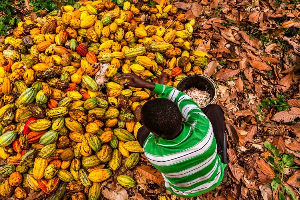Members of the European Parliament (MEPs) have passed a Forced Labour Regulation (FLR) designed to eradicate goods tainted by labour exploitation from the EU single market. The legislation, adopted on April 23, 2024, is deemed crucial, reaffirming the EU’s determination to prohibit products associated with or originating from forced labour.
Commenting on the legislation, the Environmental Justice Foundation (EJF), a sustainability and human rights organisation, stated that the resounding adoption of the FLR by the European Parliament represents a significant milestone, as it confirms that human rights issues are non-negotiable within the bloc.
The EJF explained that the overwhelming support for the legislation underscores the collective commitment to combat the scourge of forced labour, which affects a staggering 27.6 million people worldwide.
“Once in force, the regulation will enable the EU to tackle forced labour head-on, strengthening its ability to deter labour exploitation and uphold fundamental rights,” says EJF’s CEO and founder, Steve Trent.
“Passing this law is only the first step toward meaningful change, but it is a landmark moment nonetheless. Lawmakers in the EU must now prove that this law is not just rhetoric, and that it will be properly implemented and enforced to ensure there will be real consequences for those who exploit fellow human beings for profit,” he added.
The organisation has been heavily involved in investigations into abuses by Chinese distant-fleets in Ghana’s territorial waters in recent years. On many occasions, the EJF has alerted fisheries authorities in the country about incidents of illegal, unreported and unregulated (IUU) fishing practices by Chinese vessels.
The EJF emphasised that the introduction of foreign fishing vessels is having a significant impact on West African fish stocks, depriving regional governments of over US$2billion in revenue annually.
“There can be no room for ambiguity – products tainted by forced labour, such as those that can be traced to the vessels in our investigation, should be swiftly removed from EU supply chains. Failure on the part of the commission or national authorities to enforce these rules risks perpetuating a cycle of exploitation and impunity,” Mr. Trent noted.
In addition to the EJF, a Greenpeace study of IUU fishing in the region uncovered serious ongoing governance issues in West African fisheries. These include a lack of transparency in fishing access agreements with foreign fishing companies, a lack of alignment in national legislation, inadequate implementation of policies and weak monitoring and surveillance systems.
Similarly, the Walk Free Foundation, an Australian organisation dedicated to ending contemporary slavery and human trafficking in partnership with Tulane University, conducted a recent study aimed at estimating the prevalence of forced labour among both adults and children, as well as child labour, in cocoa agriculture in Ghana and Côte d’Ivoire.
According to the findings, there are an estimated 1.5 million children, aged 10 to 17, engaged in child labour in Côte d’Ivoire and Ghana. In Ghana, out of the 708,000 children working in cocoa between August 2016 and August 2017, 668,000 were in child labour, with 632,000 performing hazardous tasks.
In Côte d’Ivoire, the number of child labourers between October 2016 and November 2017 was found to be 829,000, including 769,000 working in hazardous conditions, out of the 891,000 involved in cocoa production.
Less than one percent of working children are compelled to work by someone other than a parent within the extended family. The study indicated an estimated number of 2,000 forced child labourers in Côte d’Ivoire (0.17 percent) and 14,000 forced child laborers in Ghana (1.98 percent).
Business News of Tuesday, 30 April 2024
Source: thebftonline.com
EU takes stand against labour exploitation; cocoa, fisheries sectors risk sanctions
Business
















